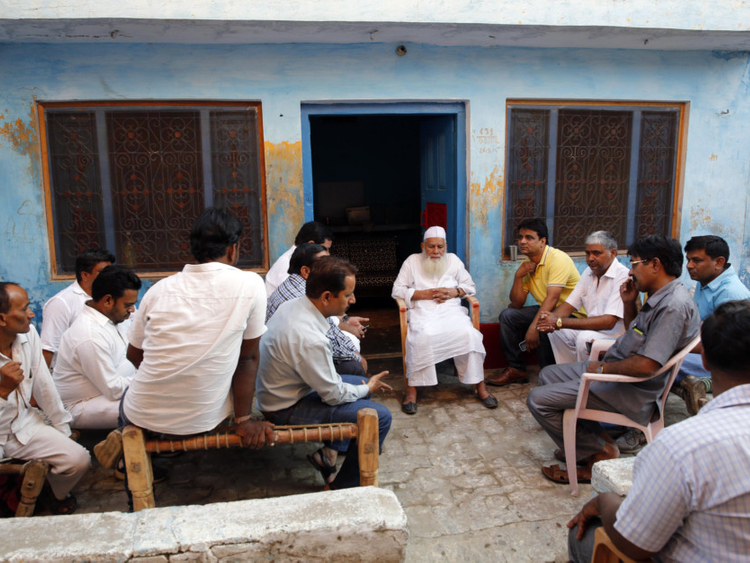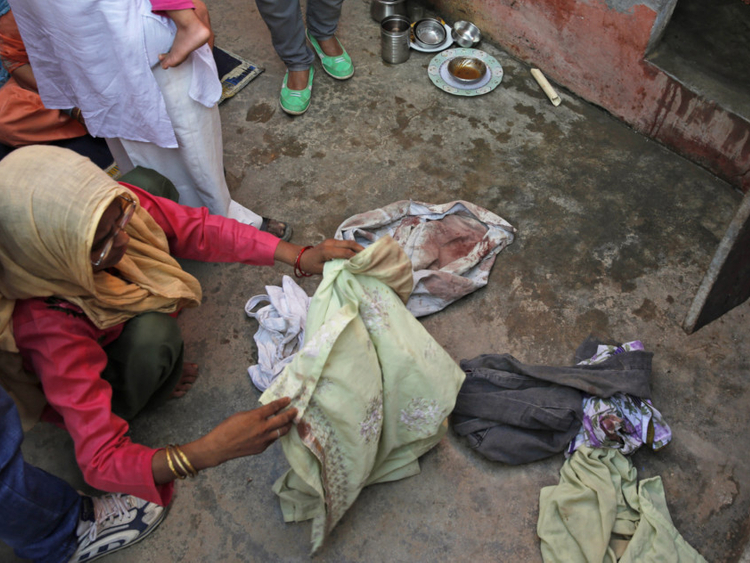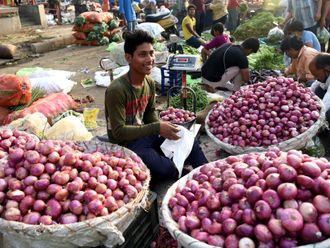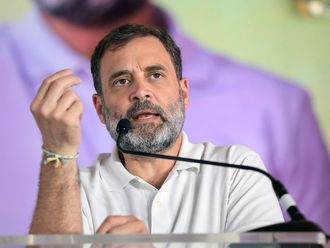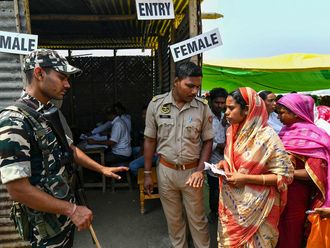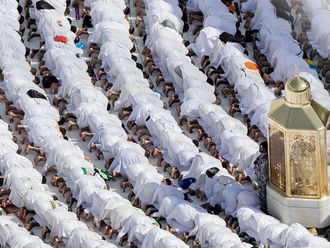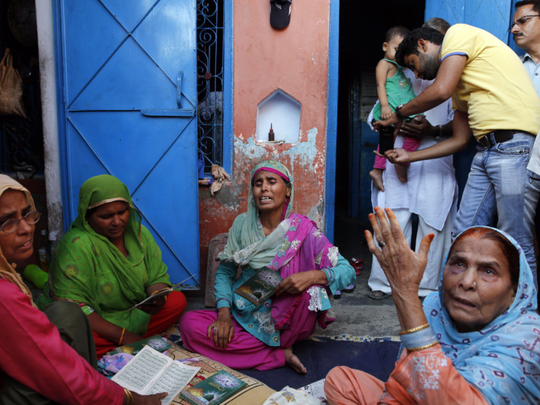
New Delhi: The killing of a 50-year-old man by a mob on the outskirts of national capital New Delhi, allegedly over rumours that he had eaten beef, has sparked a debate on religious intolerance and the recent spate of bans in the country.
Mohammad Akhlaq and his 22-year-old son were dragged from their house by around 100 villagers in Dadri in Uttar Pradesh and beaten with bricks. While Akhlaq, a farmworker, succumbed to injuries suffered during the attack, his son Danish was admitted to a government hospital where doctors described his condition as “critical”.
Half an hour before the attack on Monday, an announcement was allegedly made at a temple nearby that a calf had been slaughtered and its carcass had been found near a transformer. No names were given in the announcement, but there are only two Muslim families in the area and the other family was away. At around 10.30pm, a large mob allegedly descended on Akhlaq’s house, wrecked everything and even attacked his wife and 70-year-old mother. Akhlaq’s 18-year-old daughter Sajida, told Gulf News that they only had mutton in their fridge, a gift from relatives on Eid.
“A group of more than 100 people from the village reached our house that night. They accused us of keeping cow meat, broke down our doors and started beating my father and brother. My father was dragged outside the house and beaten with bricks. There was some mutton in the fridge and they thought it was beef. The police have taken it for forensic examination. If the results prove that it was not beef, will they bring back my dead father,” Sajida said.
The police are investigating who started the rumours in a part of western Uttar Pradesh that is prone to trouble at the slightest provocation. Senior Superintendent of Police (SSP), Gautam Buddh Nagar, Kiran S., told the Gulf News that “preliminary investigations so far have revealed that an announcement was made from the temple about the family consuming beef.”
Six people have so far been arrested in connection with the attack, sparking protests that led to police firing, damage to vehicles and injuries to a 20-year-old welder who works for the National Thermal Power Corporation (NTPC) facility in the area.
Most people cutting across religious lines are one against religious intolerance in the shape of recent bans.
“I don’t know whether to laugh or cry. In this day and age, this is what preoccupies us. It is particularly funny that the police promptly sent the meat for forensic examination to see if it was cow or goat. Does it matter now if it was cow or goat? A murder has been committed. The forensic team should help try and find the murderers and make sure they face justice — not waste their time on the identity of the meat,” said 32-year-old civil society activist Sonakshi Arora.
“We are becoming a nation of jokers obsessed only with what other people eat and what other people wear and what movies they watch and what books they read and so on. So now that we stop killing all cattle, maybe someone can clarify what are we doing to do with all the cows once they stop producing milk? Is the Bharatiya Janata Party (BJP) government going to build retirement homes to house millions of cows so they can live out their twilight years in comfort? No need to spend money on roads and ports and railways. We can devote all infrastructure funds towards cow shelters,” said 43-year-old banker Asif Qureshi.
Many believe that we should not forget our ancestors, who were hunters and ate raw meat.
“Food and religion are two separate choices that one makes after birth in the civilised world. Under an unfavourable circumstance, one may have to eat whatever available. But till then it is one’s choice and response to taste buds. I think we all have the freedom to eat whatever we like to eat,” software engineer Adil Khan, 31, said.
Social activist Mukesh Kumar, 32, did not want to question the cow slaughter law.
“If the majority of the people support the ban, so be it. The BJP has come to power with the vote of the people of Maharashtra and Haryana. Those who oppose the ban can fight the next elections on the issue. And if they win the elections they certainly can remove this ban order. However, this ban also opens a gateway for people of Kerala, West Bengal and Andhra Pradesh. They can buy cattle from Maharashtra, Haryana and transport it to their states for eventual slaughter,” Mukesh said.


